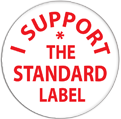The NYT reports interesting things afoot with major players Google and Microsoft pushing their own visions of the future of health care:
If the efforts of the two big companies gain momentum over time, that promises to accelerate a shift in power to consumers in health care, just as Internet technology has done in other industries.
Today, about 20 percent of the nation’s patient population have computerized records — rather than paper ones — and the Bush administration has pushed the health care industry to speed up the switch to electronic formats. But these records still tend to be controlled by doctors, hospitals or insurers. A patient moves to another state, for example, but the record usually stays.
The Google and Microsoft initiatives would give much more control to individuals, a trend many health experts see as inevitable. “Patients will ultimately be the stewards of their own information,” said John D. Halamka, a doctor and the chief information officer of the Harvard Medical School.
Indeed. Users are often (always?) the best stewards of their own data, no matter the use case or application. There is so much inherent value in managing user data from the user’s perspective that this architectural shift is not only useful, it is inevitable.
Vendor Relationship Management is creating tools for individuals to manage their relationships with Vendors. In health care, that means giving people control over their Personal Health Records and how (and which) Vendors gets access. Think Personal Data Stores as applied to health records.
The article continues:
It is common these days, Dr. Halamka said, for a patient to come in carrying a pile of Web page printouts. “The doctor is becoming a knowledge navigator,” he said. “In the future, health care will be a much more collaborative process between patients and doctors.”
Microsoft and Google are hoping this will lead people to seek more control over their own health records, using tools the companies will provide. Neither company will discuss their plans in detail. But Microsoft’s consumer-oriented effort is scheduled to be announced this fall, while Google’s has been delayed and will probably not be introduced until next year, according to people who have been briefed on the companies’ plans.
A prototype of Google Health, which the company has shown to health professionals and advisers, makes the consumer focus clear. The welcome page reads, “At Google, we feel patients should be in charge of their health information, and they should be able to grant their health care providers, family members, or whomever they choose, access to this information. Google Health was developed to meet this need.”
Just as markets are conversations, so is health care. It’ll be interesting to see what the major players do with this opportunity. It not only one of the most complex and challenging VRM scenarios–with lots of regulation and technical challenges–it is also one of the most promising.

